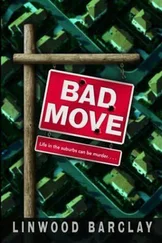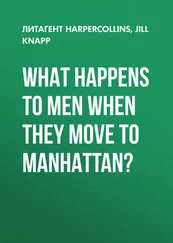“But where does the Communist movement fit into all this enterprising talk? Haven’t you already got too much bureaucracy?”
The younger of my hosts spoke up.
“At eighteen I was a Communist, like everybody else. We have malaria and jungle fever and a million diseases, but our worst disease is poverty. Young intellectuals feel trammeled at every hand by poverty. We thought communism was a cure for poverty. It seemed to open new careers for young men of brains. Now I am twentyseven and I have discovered that communism is just another way of dominating the masses. Instead of curing poverty it makes poverty universal. We have got to find other alternatives … The Communists now do not make propaganda for communism. They make propaganda against … against North America … against the rich, against anybody who is successful. In Rio they tell the poor people living in the favelas: ‘We will throw out the landlords and you shall live in luxury in the hotels and the apartment houses in Copacabana.’ It is simple. It works. Many of our most intelligent men, particularly poets, artists, architects are subject to this illusion. They have not thought the thing through to the end.”
“It is up to you North Americans to give us an alternative,” said the older man. “During the war the speeches of the great Roosevelt gave us an ideal to fight for. Since he died the United States seems to be drifting. You seem suddenly old and reactionary. We read about the Marshall Plan for Europe, but when the Communists tell us it is imperialism we tend to believe them. All we see here is the scarcity of dollars.”
“We Brazilians,” the younger man burst out, “are a people of noble impulses. We hate war and militarism. We believe in progress. We are a people of grandiose illusions. That is why the Communist movement here is like your Mr. Wallace’s party in the States. It flourishes in the best society. Many fine people in all walks of life have allowed themselves to be deceived because no one has offered them a better plan.”
“Then,” said the older man, “there is envy in every human heart. You are rich and we are poor. The Communists play on the envy of the poor for the rich. The cure is a great movement of expansion that will furnish us with new illusions.”
He looked at his watch. His voice suddenly took on the plush tones of a master of protocol. “It is time to go. His Excellency will be expecting us to make a short call at the palace.”
Next morning the governor’s airplane deposits my young literary friend, the local circuit judge, and me on an airstrip which they tell me is almost exactly in the center of Brazil. As the plane takes off again in a drive of dust we feel small and lonely under the enormous sky.
We are standing beside a new gravel road that stretches straight into the dusty distance in either direction. Behind us is the ragged airstrip and in front of us a line of great trees that hides the river, and all around a rolling country of high scrub vegetation shimmering in the heat.
The sun, already high, beats down on us hard as hail so we take cover under the porch of a long hut thatched with palm leaves. Inside we find a counter and some shelves of groceries and a pale sweatylooking heavyset man with a week’s growth of stubble on his chin. Immediately we are all drinking cafezinhos out of the inevitable tiny white cups.
First thing I ask, “Is Bernardo Sayão at the Colônia Agrícola?”
“He is,” says the pale man enthusiastically. Then he explains that we still have three leagues to go. We must be patient. They will have seen the plane and will send out for us from the colônia. Sayão always sends out for people, Sayão attends to everything.
The pale man turns out to be a Russian, from the Ukraine. He has lived twentyone years in Brazil. He made big money in São Paulo as a machinist, but when he heard about the colony and the road into the north he’d moved out here. He steps in back behind a bamboo partition and brings out a diving helmet. Gold, he says, rolling his bloodshot gray eyes; he dove in the rivers for gold. Was he making money at it? One eye crinkles up like a parrot’s and his face takes on that sly look of the peasant on the steppe. He doesn’t answer but he holds up his thumb and forefinger and rubs them together vigorously.
Before we know what has happened we are adrift in a tumultuous argument about the Soviet Union. The pale man insists that Russia behaves as she does because she is ringed by treacherous enemies. England and America have always been her enemies. My literary friend from Goiânia brings up the Stalin-Hitler Pact. The Brazilian judge, a small brown sparrowlike man with tortoiseshell glasses, perks up and asks if the Russians did right to partition Poland. In 1918 the imperialist nations fought Russia, the pale man shouts back, fingering his diving helmet in a threatening way as if about to use it for a weapon. We lean across the counter and roar at him.
Meanwhile an audience is gathering, an aged scarecrow with a face of stained leather puckered on one side by some sort of ulcer, a soiled barelegged boy with a cast in his eye, a dog, two hens and a rooster. A pig sticks his snout in through a rent in the bamboo wall. Two tiny yellowfaced children peek in beside him.
We are all sweating like horses. The pale man tears the shirt off his damp chest in an agony of conviction. It is all lies we are telling about the Soviet Union. Then he lays his thick forefinger along his nose and crinkles up his eye with that sly look again and says, “In all this there is a mystery … There is a very secret mystery. It is true that there is no liberty now but the secret of Russia is liberty in the future.”
“Look here,” the judge asks him, “if you are such an admirer of the Soviet Union how is it you’ve been spending all these years in Brazil looking for gold like a capitalist?”
Suddenly the pale man smiles all over his face. He slaps his wet chest. He has a friend in São Paulo, he drawls, who is a doctor and writes very brilliant articles against alcoholism. This doctor wrote a whole book against alcoholism but whenever his friends meet this doctor he is in a bar buying himself a drink. The pale man thrusts out his hand laughing. He shakes hands all around then he brings out another set of cafezinhos on the house.
The cloud of dust that has been coming towards us down the road turns out to contain a bus, a junglestained paleblue bus bulging with passengers and packages. The bus stops in front of the palmthatched hut. A few grimy passengers straggle out to have themselves a coffee. The bus is on its way to the colônia. We are fitted in among dogs and bundles and crates of fowls and the bus starts off grinding and lurching on its slow way through the shabby dryseason jungle. After a while we begin to pass clearings where huge stumps and the skeletons of felled trees still smolder from the burning over; then thatched shelters, a few half finished houses of brick. In front of the first tileroofed houses we see a wattled cage that someone explains is a wolf trap.
We drive downhill through a broad street of low houses which are mostly stores. A crazy bamboo shack has a sign, CAFÉ CERES. We pass a billiard parlor. We cross a green river on a floating bridge supported on clusters of oil drums lashed together. The Rio das Almas. Everybody points out a small white house on top of a grassy hill. That is where Sayão lives.
We are deposited in front of a set of new brick walls which are marked GRANDE HOTEL CERES. We pick our way past the bricklayers, stepping over planking heaped with fresh mortar, and find that the diningroom and a few small alcoves have been completed. The hotel is open for business. The landlady greets us and briskly straightens up a table for our lunch. She speaks English. She comes from the northern part of Bohemia, she says. Oh yes she’d been in the colônia a long time, almost a year.
Читать дальше












